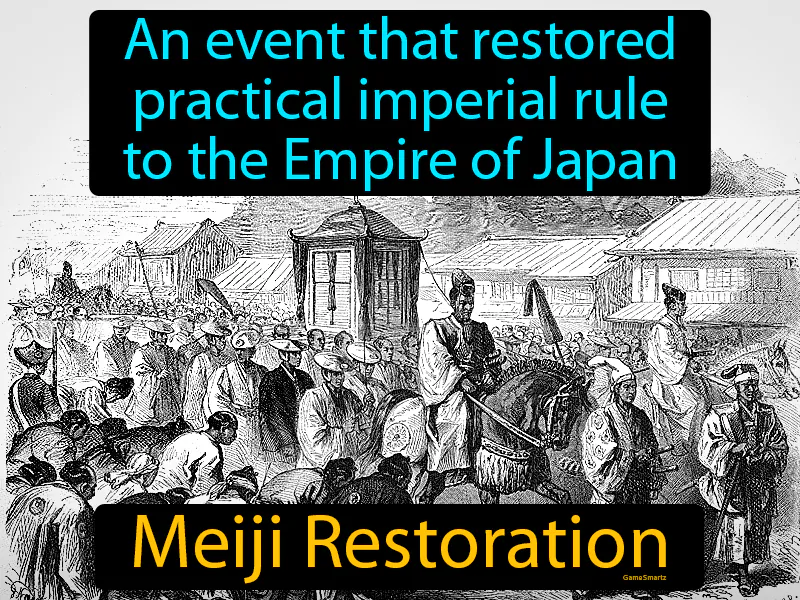Meiji Restoration

The Meiji Restoration, beginning in 1868, was crucial in transforming Japan from a feudal society into a modern industrial nation, allowing it to compete globally. This event highlighted the tension between traditional ways and modernization, a theme still relevant today as societies balance preserving culture while embracing technology. By adopting Western practices, Japan rapidly industrialized, influencing global trade and contributing to the interconnected economy we experience today. For an average person, this means access to various goods from around the world, influenced by Japan's industrial growth, such as electronics and cars. Additionally, the Meiji Restoration's impact on education and government reforms set a precedent for valuing education and effective governance, principles that shape our daily lives, especially in democratic societies.
Practice Version

Meiji Restoration: An event that restored practical imperial rule to the Empire of Japan. Meiji Restoration. The Meiji Restoration was a period in Japanese history when the emperor's power was restored, leading to major political, economic, and social changes as Japan modernized rapidly.